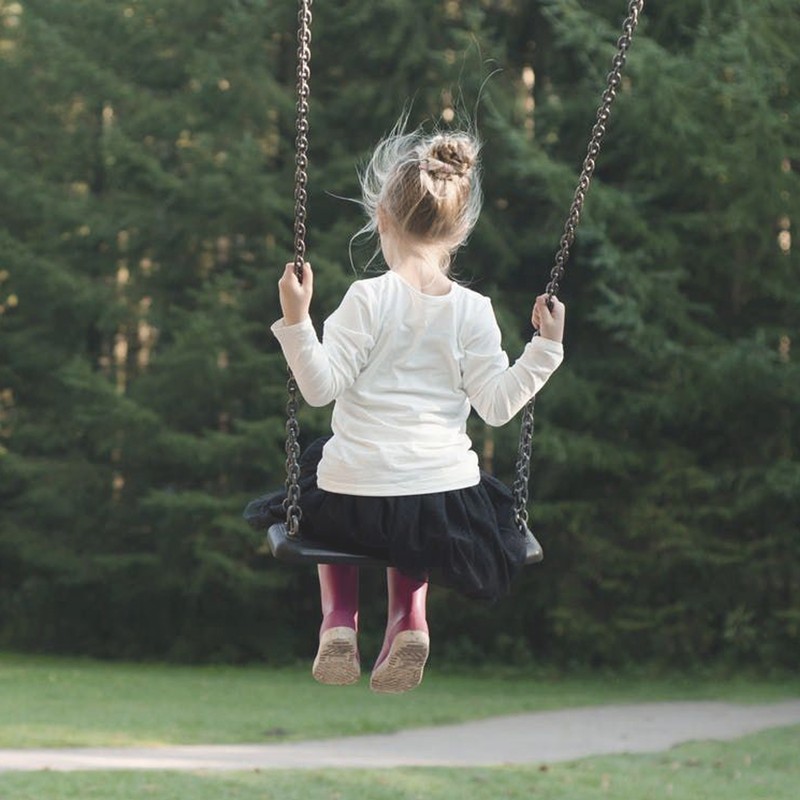7 Ways Being An Only Child Can Shape Your Personality
1. They Tend To Have Higher IQs
Research shows only children are likely to have higher IQ scores, better verbal skills, and be more creative and flexible in their thinking processes. One 20-year tracking study of 3,000 American high school students even found that an increased sibling size has marked negative effects on IQ.
The late sociologist Judith Blake, author of the seminal text Family Size and Achievement, put this down to only children receiving more attention than those with brothers and sisters, and the fact that, in large families, the overall intellectual level of the home becomes more childlike. “Children may saturate the environment in large families so that it may be rare for adult conversations, vocabulary, and interest to hold sway,” she wrote.
2. They’re Likely To Be High Achievers
As with intelligence, the same goes for achievements. Not only do children from small families tend to stay in education longer than children, studies have shown they feel markedly more confident in their academic abilities at school and are more ambitious. One study of 40,000 high school students also found that only children tended to grow up to have white collar, scientific and cerebral careers; marry better-educated spouses; and have fewer children. A disproportionate number of only children have appeared on the cover of Time magazine.
Blake also put this down to only children being exposed to adult conversations, vocabulary and interests more in the home – noting that this helps children grow up faster and become more worldly. She suggested that since effective studying "typically requires concentrated periods of solitude, the development of a tolerance for being alone at an early age may be helpful to the academic development" of only children too.
3. They’re Not More Spoiled (But They Can Be Possessive)
According to Susan Newman, parenting expert and author of Parenting an Only Child, "The studies all show that only children are not spoiled.” Nowadays, most parents (59% according to one poll) admit to spoiling their kids, regardless of how many they have – so, as Newman points out, spoiling “is a parenting problem not cured by having two children instead of one.”
However, she does believe that certain valued possessions can become particularly significant to some only children. This could be because they haven’t got siblings to attach to, so things become more important than they otherwise might – which can often lead to them acting territorially or overprotective of the items they hold dear.
4. They Often Have Perfectionist Streaks
Only children can “push themselves pretty hard,” Carl Pickhardt, psychologist and author of The Future of Your Only Child, told VICE. “When they say to themselves, I am in this family. I can have an equal say to my parents, and equal standing, what they sometimes do is they apply equal standards and say, I should be able to do as well as my parents, and they get exaggerated standards of performance.”
He also revealed that only children can become self-critical when they don’t do as well as they like, adding that parents generally don’t have to do much pushing, because they're usually over-pushing themselves.
5. They’re Usually Strongly Self-Directed
Pickhardt notes that only children are usually self-willed, as they’re used to looking out for their own self-interests. “They're pretty sure of the values that they hold, and they can sense that they know very often what is right,” he says. Often in adult relationships, they're not very comfortable in conflict, because they just haven't had much experience with it.
While being more independent from a young age means only-borns can be comfortable dealing with adult authorities as children, in adulthood this sometimes leads to struggles at work – especially when their performance depends on teamwork with other people.
6. They Tend To Avoid Conflict
A 2016 study comparing children’s brain scans also found only-borns were less agreeable than children with siblings. The researchers suggested this could be due to excessive attention from family members, less exposure to external social groups and more focus on solitary activities while growing up.
But although only children may have issues surrounding teamwork – such as sharing, cooperation, compromise and making concessions – they’re probably not likely to air their grievances openly. “Often in adult relationships, they're not very comfortable in conflict, because they just haven't had much experience with it,” Pickhardt says.
7. They Mostly Prefer Small Friendship Groups
Despite being more cultured, mature and socially sensitive, only children are often less outgoing than their counterparts with siblings, and more private. Rather than hanging out with large groups of people, they tend to be more interested in spending time with a few select, very good, close friends.
As Dr Murray M. Kappelman, author of Raising the Only Child, only children tend to put great stock in friendships and create something kind of like sibling attachment with their friends so they can enjoy the same closeness. Their need to avoid conflict can also manifest itself in friendships: “If the friendship breaks up, they are more inclined than other children to blame themselves,” she says.
DISCLAIMER: We endeavour to always credit the correct original source of every image we use. If you think a credit may be incorrect, please contact us at info@sheerluxe.com.


